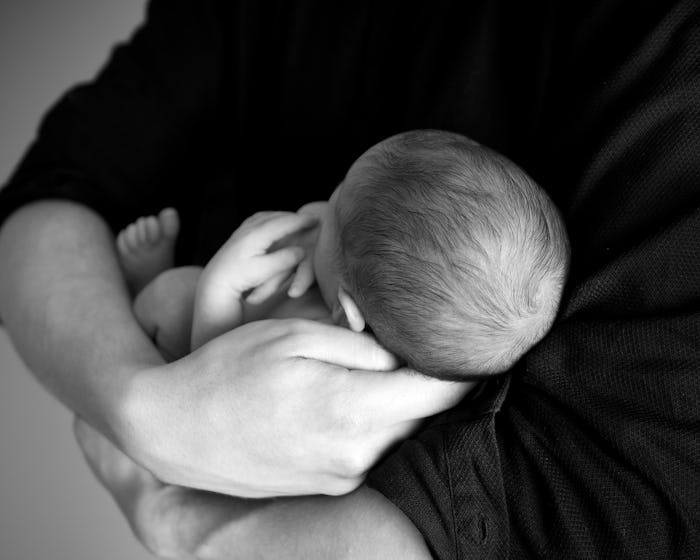News
Can You Predict Whether A Baby Will Have Allergies? Scientists Have Found A Big Indicator
A new study published this month says that there might be a way for doctors to predict whether a baby will have allergies or not, which is a pretty big deal since allergies are the bane of everyone's existence. They're unpredictable, costly to treat, and, in the worst cases, sometimes deadly. Being able to prevent allergies like asthma, rhinitis, and eczema is a major breakthrough, and researchers think they might have cracked the case. Right now it's still just a solid theory, but it could mean big things in diagnosing infant atopy and the ability to create treatment plans early on in an infant's life to prevent any of the allergies from becoming chronic conditions.
A study, published in Nature, shows that it's all about the bacteria in an infant's stomach. Everyone has bacteria in their stomach — it's a good thing. And a greater variety of microbes in a person's gut has been shown to decrease the risk for obesity, auto-immune disease, allergies, and asthma.
The researchers from the University of California San Francisco found that infants with less bacteria in their stomachs and more fungi were three times more likely to develop allergies like asthma, eczema, and rhinitis than those with more bacteria and less fungi in the gut. If doctors can test infants for this early on, there could be a way to treat it and possibly stave off allergies later in life.
To figure out how much bacteria infants had in their guts, the researchers had to do some dirty work. Researchers from the Henry Ford Health Center in Detroit, Michigan took soiled diapers from 130 one-month old infants living in the area and froze them in 2003. They then unfroze them and studied them ten years later. Because who doesn't have a frozen diaper in their freezer?
The scientists collected the microbial data and then returned to the infants when they were 2-4-years-old and tested them for severe allergies like asthma. They found that 11 of the 130 infants had lower bacteria levels, which made them, supposedly, more prone to allergies.
Susan Lynch, a lead author on the study said in a press release that this means pediatricians can diagnose allergies so much earlier than they currently do. Lynch said:
Currently, children are typically six or seven years old when they are diagnosed with asthma, which has no cure and has to be managed through medication. But if the genesis of the disease is visible as a disruption of gut microbiota in the very earliest stages of postnatal life, it raises an exciting question: could we reengineer the community of microbes in at-risk infants to prevent allergic asthma from developing?
The research looks promising, but there will likely be some time for new parents to wait before any pediatrician can start doing tests on the bacteria in an infant's stomach. First, there's got to be a way to do it without freezing diapers.
